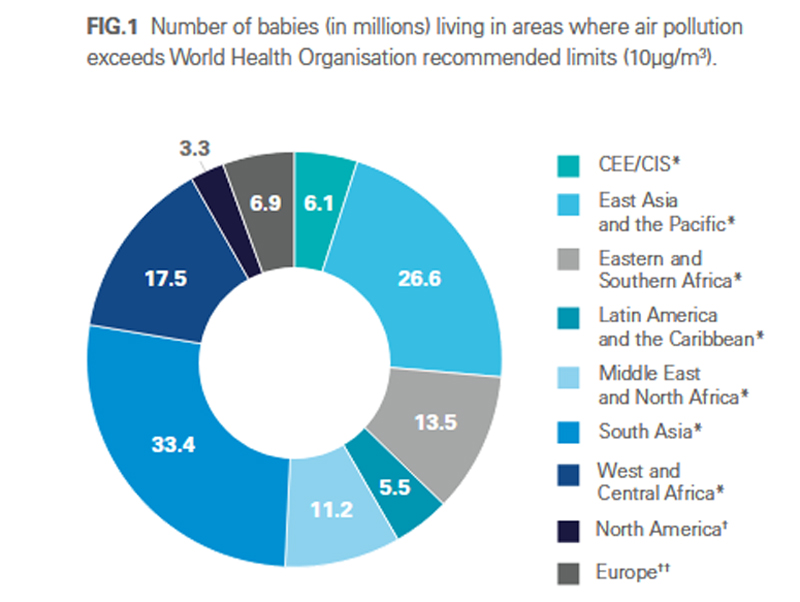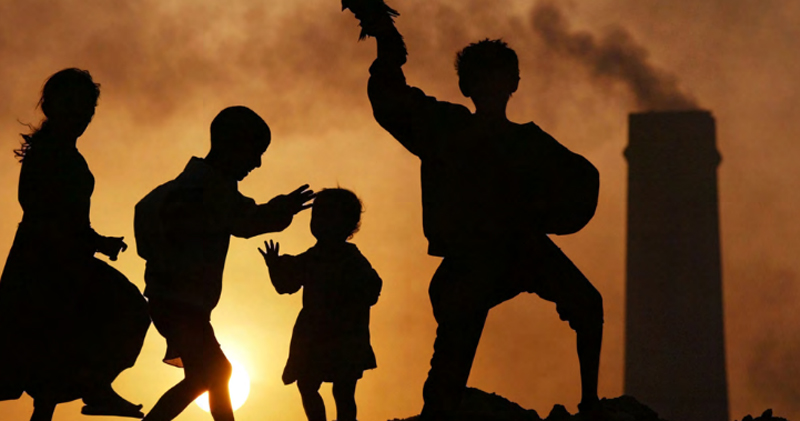Around 17mln babies breathing toxic air
KATHMANDU: Around 17 million babies under the age of one are breathing toxic air with most of them living in South Asia where the air pollution is at six times higher than limit set by the World Health Organisation, a report unveiled by UNICEF stated.
More than three-quarters of these young children, 12.2 million, live in South Asia. The pollution is causing toddlers to breathe toxic air that put their brain development at risk, read the report.
The report entitled “Danger in the Air: How air pollution can affect brain development in young children” also notes that breathing in particulate air pollution can damage brain tissue and undermine cognitive development – with lifelong implications and setbacks.
UNICEF Executive Director Anthony Lake said, “Not only do pollutants harm babies’ developing lungs, they can permanently damage their developing brains, thus, their future.”

“Protecting children from air pollution not only benefits children, but societies as well– realized in reduced health care costs, increased productivity and a safer, cleaner environment for everyone,” added Lake.
The report also shows that air pollution, inadequate nutrition and stimulation, and exposure to violence during the critical first 1000 days of life, can impact their early childhood development by affecting their growing brains.
The toxic air can cause neuro-inflammation, neuro-degenerative diseases and damage areas in the brain that helps in neurons communication, foundation for child’s learning and development.
UNICEF has suggested that immediate action must be taken to reduce air pollution amid emerging evidence.
“No child should have to breathe dangerously polluted air and no society can afford to ignore air pollution,” said Lake.






